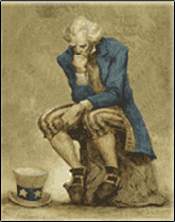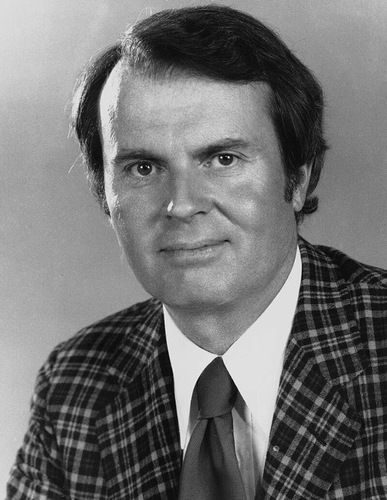
(function(d, s, id) { var js, fjs = d.getElementsByTagName(s)[0]; if (d.getElementById(id)) return; js = d.createElement(s); js.id = id; js.src = “https://connect.facebook.net/en_US/sdk.js#xfbml=1&version=v3.0”; fjs.parentNode.insertBefore(js, fjs); }(document, ‘script’, ‘facebook-jssdk’)); –>
–>
February 3, 2024
The passing of broadcaster Charles Osgood merits a pause, both to give thanks for the gift of his many talents and to reflect on the changes in our society that will probably keep such talents from the forefront of popular culture for the foreseeable future. Not that we’ve ever been overburdened with Charles Osgood-types. He was a uniquely puckish polymath: a wit, writer, raconteur, musician, poet, and all-around “hail fellow well met” who was blessed with a beguiling vocal instrument that proved to be the ideal delivery vehicle for the whimsy he shared so generously.
‘); googletag.cmd.push(function () { googletag.display(‘div-gpt-ad-1609268089992-0’); }); document.write(”); googletag.cmd.push(function() { googletag.pubads().addEventListener(‘slotRenderEnded’, function(event) { if (event.slot.getSlotElementId() == “div-hre-Americanthinker—New-3028”) { googletag.display(“div-hre-Americanthinker—New-3028”); } }); }); }
It takes a very special sensibility to perceive the droll possibilities of a soulless, bureaucratic abbreviation like POSSLQ. The U. S. Census Bureau created the acronym in the late 1970s to refer to “Person(s) of the Opposite Sex Sharing Living Quarters.” Osgood promptly commandeered these letters for a love poem and used the first two lines quoted below as the title of a 1981 collection of his writing:
There’s nothing that I wouldn’t do
If you would be my POSSLQ
‘); googletag.cmd.push(function () { googletag.display(‘div-gpt-ad-1609270365559-0’); }); document.write(”); googletag.cmd.push(function() { googletag.pubads().addEventListener(‘slotRenderEnded’, function(event) { if (event.slot.getSlotElementId() == “div-hre-Americanthinker—New-3035”) { googletag.display(“div-hre-Americanthinker—New-3035”); } }); }); }
You live with me, and I with you
And you will be my POSSLQ
I’ll be your friend and so much more
That’s what a POSSLQ is for…
Sometimes, I wonder what became of charm. We used to produce personalities like Cary Grant and Fred Astaire, who seemed to be steeped in the stuff. Now, it has become the rarest of commodities.
 When I was younger, my two favorite broadcasters were Paul Harvey and Charles Osgood, both charming men in their own way, albeit with radically different approaches. Mr. Harvey’s conservative commentary left no doubt where he stood politically on the issues of the day. Mr. Osgood was more concerned with adding a little something to the information at hand that might make you smile if not outright guffaw. In both cases, when listening to them, you felt like you were catching up with an old friend who knew you well. You were happy to have had a chance to visit.
When I was younger, my two favorite broadcasters were Paul Harvey and Charles Osgood, both charming men in their own way, albeit with radically different approaches. Mr. Harvey’s conservative commentary left no doubt where he stood politically on the issues of the day. Mr. Osgood was more concerned with adding a little something to the information at hand that might make you smile if not outright guffaw. In both cases, when listening to them, you felt like you were catching up with an old friend who knew you well. You were happy to have had a chance to visit.
‘); googletag.cmd.push(function () { googletag.display(‘div-gpt-ad-1609268078422-0’); }); document.write(”); googletag.cmd.push(function() { googletag.pubads().addEventListener(‘slotRenderEnded’, function(event) { if (event.slot.getSlotElementId() == “div-hre-Americanthinker—New-3027”) { googletag.display(“div-hre-Americanthinker—New-3027”); } }); }); } if (publir_show_ads) { document.write(“
Does anyone believe that in our lifetimes we’ll ever encounter another amiable, avuncular presence taking up the mantle of “journalist” whose wares will be welcomed with such warmth and enthusiasm into a vast cross-section of American homes? Sadly, I don’t think so.
We’re much more likely to cock a jaundiced ear at any newcomers in media, carefully vetting every syllable they utter to determine on which side of the ideological divide they’ve planted their flag and, based on that single criterion, whether or not we’ll ever listen to another thing they say. Unfortunately, this now extends to the arts, travel, sports, cookery, and all sorts of other subject matter that used to be discussed apolitically. We have, to a degree, become prisoners of our sensibilities. “Being politically correct,” Osgood once wryly observed, “means always having to say you’re sorry. “
Of course, this need for scrutiny has largely been imposed on us by the sorry state of contemporary media, where establishing your bona fides with every utterance has transformed most “news programs” into showcases for a wearisome form of ideological Tourette’s. I am a conservative, and I’m assuming that a Manhattan-based career such as Mr. Osgood’s, forged in an environment like CBS News, probably resulted in a number of viewpoints I wouldn’t share. Fortunately, Osgood never asked me to.
Here is how Osgood, in 2016, described to his colleague, Lee Cowan, his approach to the CBS Sunday Morning program: “I like to think of it as people watching the show and getting some satisfaction out of it, and learning something and not having something forced down their throats. “
Osgood was primarily a creature of radio, so much so that “I’ll see you on the radio” became the trademark signoff of his television broadcasts. “American radio of the 1940s,” he once reflected, “is the reason I’m doing what I do today instead of playing the organ at a skating rink.”
From 1971 to 2017, a remarkable run spanning nearly half a century, he produced multiple weekday installments for his radio commentary program, The Osgood File. His mischievous persona translated seamlessly to television, where it was augmented by his sartorial trademark, an impish parade of bow ties. When original host Charles Kuralt retired and handed over the CBS Sunday Morning program to Osgood in 1994, it proved the most inspired changing of the guard since Jack Paar ceded The Tonight Show to Johnny Carson.
In the ensuing 22 years under Osgood’s stewardship, the program earned multiple Emmy Awards and became thoroughly ensconced as a Sunday morning tradition in millions of homes. Osgood chatted with everyone from Julia Child to Chuck Berry and Keith Haring, coming across as the same gracious, intelligent, and irreverent companion in each varied setting. He also sang, played the piano and banjo, and secured his standing as the most beloved purveyor of light verse since Ogden Nash.
It’s interesting to note that, while many embraced the folksy and “comfortable as an old shoe” aspects of his persona that echoed his predecessor, Charles Kuralt, others enjoyed him as a sort of devil-may-care sophisticate with a taste for the good things in life (which he certainly had, including a summer home in the south of France with a piano in the music room that had been used by Glenn Gould for recordings). When you radiate authenticity at your core, people can latch on to whatever trappings they fancy.
Charles Osgood was 91 when he died on January 23. He left behind a lifetime of joy and laughter, much of which is still available to be sought out and enjoyed. I only hope that if we are ever lucky enough to have someone else as uniquely wonderful in their own individual way come along and knock on our collective door, we’ll have the good sense to let them in.
Joseph F. Laredo is a Grammy-nominated writer and popular culture historian.
Image: Charles Osgood in 1979. Public domain.
<!–
–>
<!– if(page_width_onload <= 479) { document.write("
“); googletag.cmd.push(function() { googletag.display(‘div-gpt-ad-1345489840937-4’); }); } –> If you experience technical problems, please write to [email protected]
FOLLOW US ON
<!–
–>
<!– _qoptions={ qacct:”p-9bKF-NgTuSFM6″ }; ![]() –> <!—-> <!– var addthis_share = { email_template: “new_template” } –>
–> <!—-> <!– var addthis_share = { email_template: “new_template” } –>




